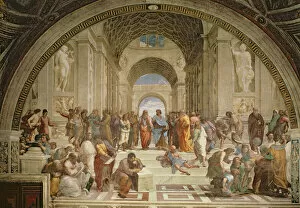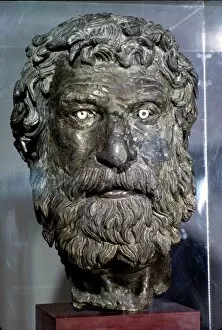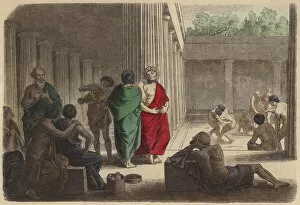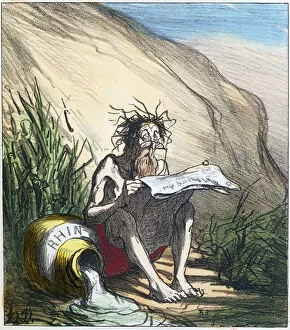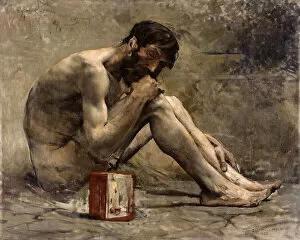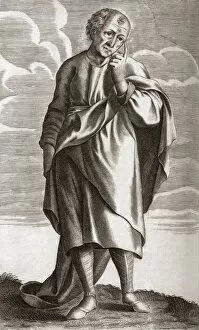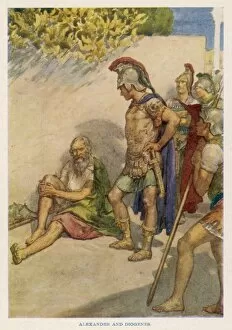Cynic Collection
"Cynic
For sale as Licensed Images
Choose your image, Select your licence and Download the media
"Cynic: Unveiling the Essence of Ancient Wisdom and Skepticism" Step into the world of ancient philosophy with these captivating artworks that shed light on the enigmatic figure known as a cynic. From Raphael's masterpiece "School of Athens" to Ugo da Carpi's intriguing portrayal, each piece captures the essence of this unique philosophical movement. In Raphael's fresco "School of Athens, " we catch a glimpse of Diogenes, one of the most prominent cynics, engaging in deep contemplation amidst a gathering of great minds. His unassuming presence challenges conventional wisdom and invites us to question societal norms. The oil painting by an unknown artist titled "Diogenes" portrays him in his humble abode, living simply in a barrel. This depiction reminds us that material possessions hold no value for true enlightenment; instead, it is found within ourselves. Discovering an astonishing artifact from antiquity, the Bronze Portrait Head offers an intimate glimpse into the physical features and intellectuality associated with philosophers like Diogenes. It serves as a testament to their enduring influence throughout history. A colored engraving depicting scenes from an ancient Greek gymnasium transports us back to Diogenes' time when he would engage fellow citizens in thought-provoking discussions while challenging social conventions. These interactions were crucial for fostering critical thinking and intellectual growth. Marble sculptures immortalize Diogenes' legacy through intricate details capturing his introspective gaze and rugged appearance. Such works remind us that even centuries later, his teachings continue to inspire seekers of truth. One particularly fascinating encounter between Alexander the Great and Diogenes is depicted in another artwork. Their meeting symbolizes two contrasting ideologies colliding - worldly power versus philosophical simplicity - leaving viewers pondering which path holds greater significance. Francisco de Goya y Lucientes' etching titled "Menippus" showcases yet another influential cynic philosopher who employed satire as a tool to expose societal hypocrisy.


